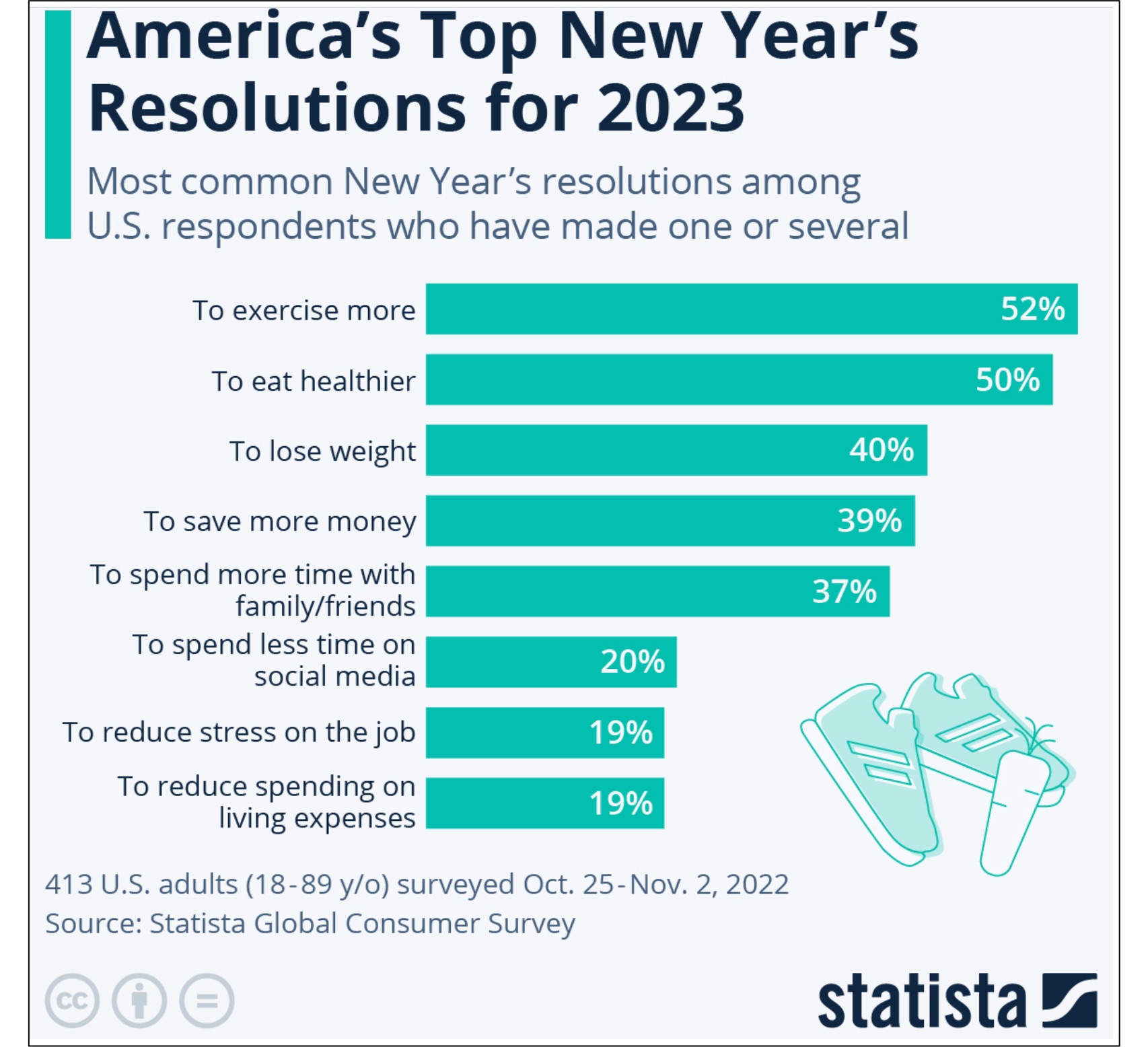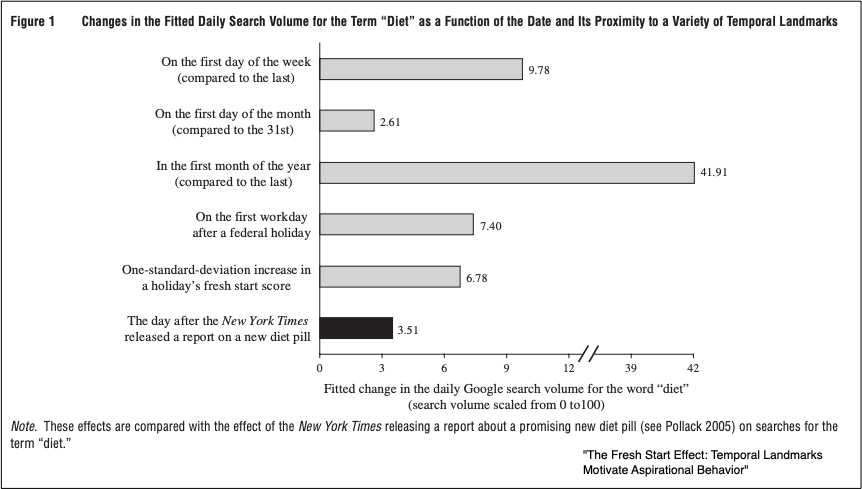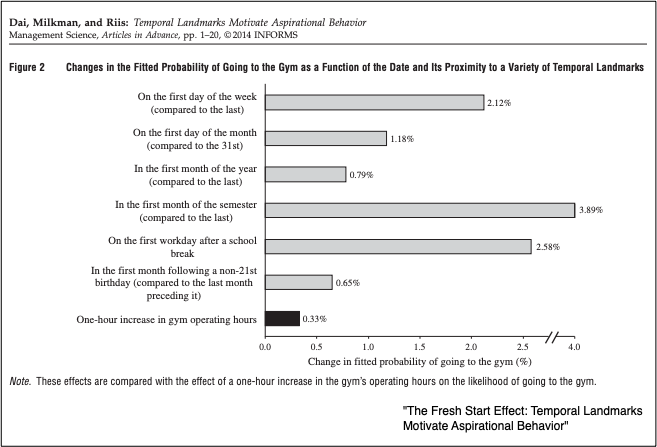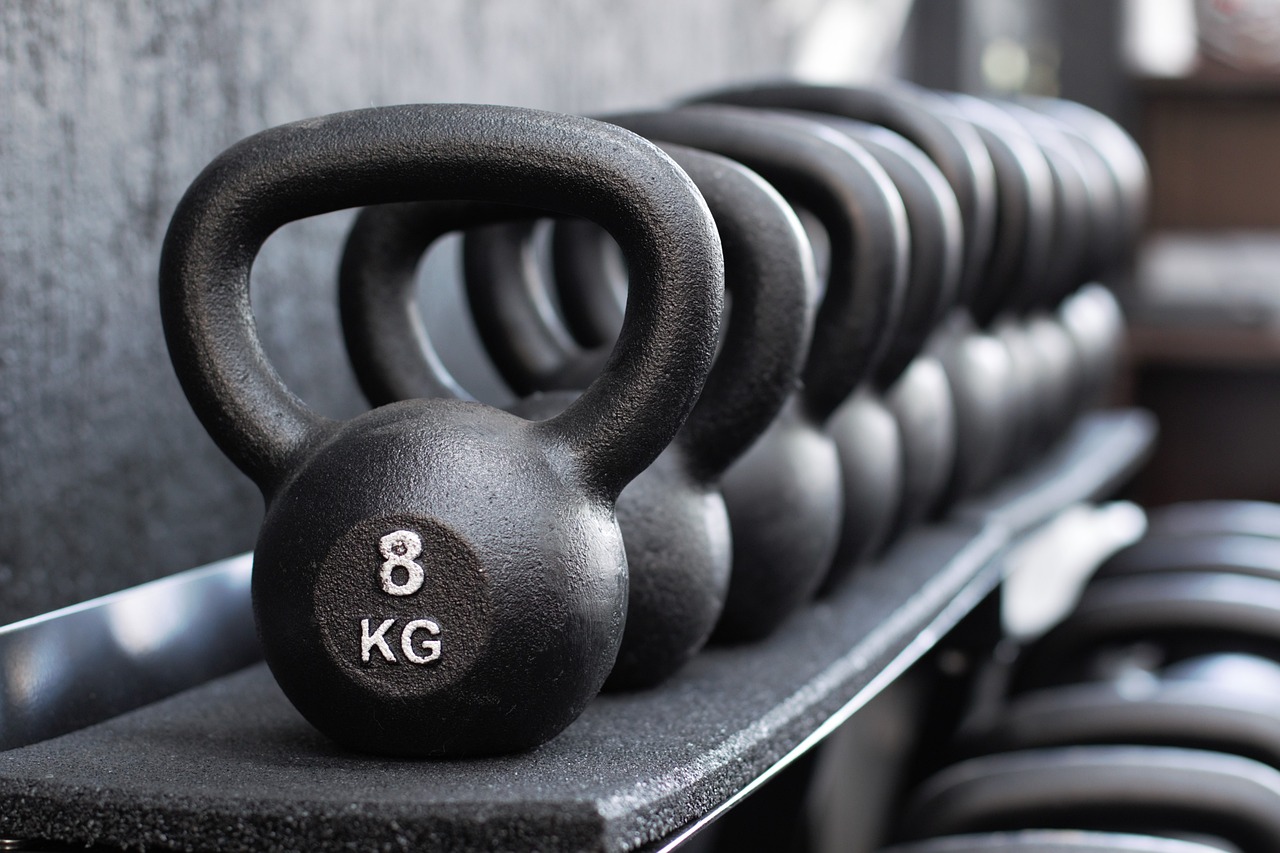Having made our New Year’s resolutions, we can ask a behavior economist how to keep them.
New Year’s Resolutions
To begin, we can see what we’ve resolved:

The Fresh Start Effect
The New Year lets us divide our life into slots. Called the fresh start effect, those slots are the mental accounting periods that separate past “flawed” behavior and our plans for a more perfect future. Also, they let us step back from life’s daily details and see the bigger picture.
For example, diet searches are more common at the beginning of calendar periods:

Similarly, we tend to exercise more so on Mondays or during the first month of the semester:

Our Bottom Line: Commitment Devices
Assuming that the New Year is the perfect time for a fresh start, behavioral economists would say that the next step is a commitment device. Defined as a tactic that helps us achieve our new goal, commitment devices return us to the resolutions in the Statista graph. They are the incentives that will help us stick with exercising more and eating healthier food.
Temptation Bundling
First, with temptation bundling, we combine our “wants” and “shoulds.” Temptation bundling limits the time used for our indulgent wants while encouraging a distasteful activity that will be good for us. We wind up with less of the “wants” and more of the “shoulds.” Done alone, each activity has less utility. Done together they create a value boost. I temptation bundle when I do the dishes while listening to a John Grisham mystery. For my morning walks, I look forward to podcasts (especially Slate Money on Saturdays).
Piggybacking
With piggybacking, we “attach” a new task to one that we habitually do. The result is a cue. After accomplishing what we usually do, we have something that is supposed to come next. For me, that meant leaving dumb bells on my closet shelf. When I pull out a t-shirt, I lift a few weights.
I have found that temptation bundling (a riveting audio book with the dishes or good podcasts with a five mile walk) works best. You?
My sources and more: Although sometimes a bit too cheerful for me, Penn Professor Katy Milkman’s Choiceology podcast is always interesting and a good source of behavioral economics–like the “fresh start effect.” Then, her podcast took me to her paper on the “fresh start effect” and to this The Washington Post article. But also do take a look at the commitment devices we shared in past New Year’s posts, here and here.
Our featured image is from Pixabay.
This was an updated version from past years. I hope you enjoyed it.






